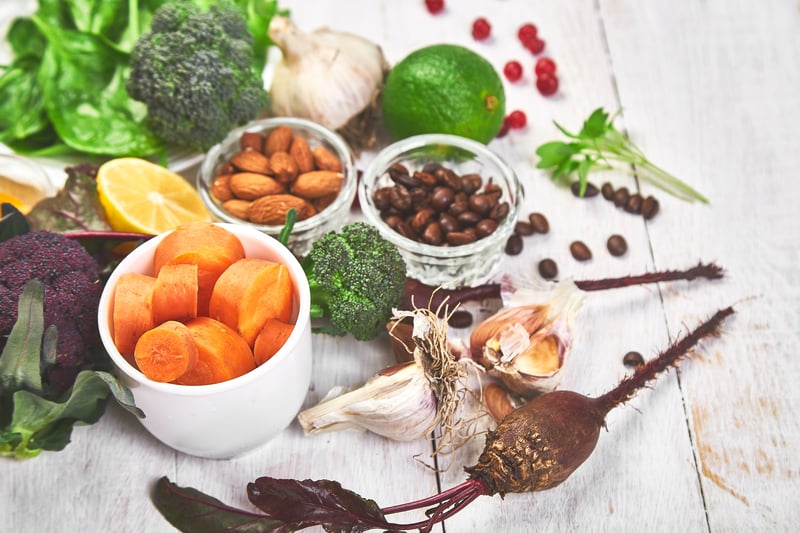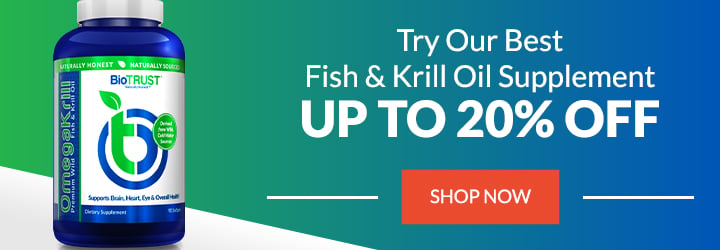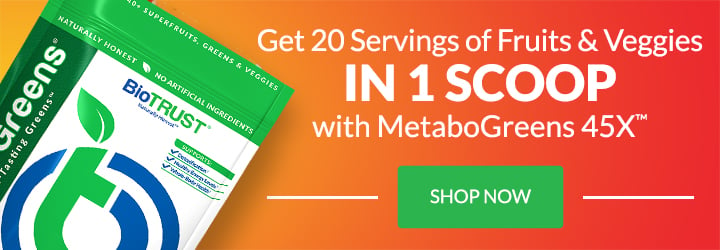Liver Cleansing Diet: The Top 10 Foods For Your Liver

The liver has a mostly thankless, yet vitally important job in the body. It produces proteins, cholesterol, vitamins, and bile. It stores vitamins, minerals, and other nutrients. It breaks down carbohydrates. Of course, it’s best known as the body’s natural detoxifier, as it metabolizes potentially toxic compounds, ranging from alcohol to medications and more. So, how can you keep your liver in top shape? As with so much when it comes to health, a lot depends on diet. Indeed, there are foods for your liver that you can include to support a liver cleansing diet and overall health.
Why is the Liver So Vital?
A liver that doesn’t function well can’t do its multiple jobs. For example, it can’t manufacture bile or rid the body of harmful substances. This can lead to nausea, loss of appetite, blood in the stool, diarrhea, fatigue, and even liver disease, metabolic disorders, or type 2 diabetes. In the U.S. alone, around 30 million people suffer from some form of liver disease. 1
The liver is also vital for:
- Making proteins, which aid in blood clotting, transporting oxygen, and supporting the immune system
- Creating bile, which is needed for digesting food
- Storing glucose (i.e., sugar) as glycogen
- Breaking down fats and producing cholesterol
- Removing harmful substances from the bloodstream, including medications (like acetaminophen, certain antibiotics, antidepressants, and others), alcohol, recreational drugs, environmental pollutants, agricultural chemicals, household chemicals, food additives, bacterial endotoxins, and more
Top 10 Foods For Your Liver
What you eat (and don’t eat) can have big effects on the health of your liver. Here are 10 liver cleansing diet foods that have been shown to be beneficial.
1. Coffee
Coffee drinkers rejoice! Coffee is recommended to help protect against liver disease, even for those who may already have problems. In fact, this delicious and highly popular beverage has been shown to help decrease the risk of cirrhosis, non-alcoholic fatty liver disease, and liver damage. 2,3
For instance, coffee has been shown in studies to reduce the accumulation of fat and collagen in the liver as well as to promote antioxidant capacity. 4 And it’s even helpful for those who have chronic liver disease—especially when more than two cups per day are consumed. 5
2. Green Tea
For those who aren’t big fans of coffee, another beverage that can be particularly helpful for the liver is green tea. In fact, a large Japanese study indicated that 5 to 10 cups of green tea per day improved liver health as evidenced by improved biomarkers. 6 Other research has found that people who drink green tea (at least 4 cups per day) are less likely to develop liver cancer. 7
It is important to note that this positive research applies only to drinking green tea (as a beverage) and not to green tea extracts or supplements. To ensure you’re protecting your liver, brew up a cup and sip rather than swallowing a pill and expecting the same benefits.
3. Water
The liver also runs best when we’re hydrated, so ensure you drink plenty of water throughout the day. Water is a key component of any liver cleansing diet.
4. Fatty Fish
Oily fish, such as salmon, trout, herring, and sardines, are the best dietary source of the long-chain omega-3 fatty acids EPA and DHA, which are good, healthy fats. In addition, they may be especially beneficial for the liver. 8 This is due to the fact that they may prevent the buildup of excess fats as well as support healthy levels of liver enzymes, an indicator of liver health.
For the greatest benefit, consume fatty fish at least two times each week or consider taking a daily omega-3 fat supplement.
Consuming enough omega-3 fatty acids, however, is just one half of the equation. Ensuring a healthy ratio of omega-3 to omega-6 fats is also critical. Unfortunately most Americans tend to eat too many omega-6 fats and not enough omega-3 fats, an unhealthy imbalance that can increase the risk of liver disease. 9
5. Walnuts
Eating a small handful of walnuts on the daily may help maintain liver health, as they provide healthy fats, vitamin E, and a robust array of phytonutrients, including flavonoids and phenols, which have powerful antioxidant properties. These nutrients are helpful for reducing excess inflammation, fighting oxidative stress, and improving liver enzyme levels. 8 Just remember to manage serving sizes as excess calories and fat also stress the liver.
6. Oatmeal
Fiber is vital to digestion, and oatmeal is an easy way to increase the amount of fiber in the diet. It also provides a specific fiber called beta-glucan, which can be especially beneficial for the liver. For instance, oat beta-glucan has been shown help protect the liver, fight inflammation, and help protect against diabetes and obesity. 10 Animal research has also shown that oat beta-glucan may reduce the amount of fat stored in the liver.
To get the most out of your oatmeal, ensure you’re enjoying whole oats or steel-cut oats rather than processed quick oats or pre-packaged oatmeal, which is often loaded with excess sugar and other less healthy additives.
7. Cruciferous Vegetables
Broccoli, Brussels sprouts, cauliflower, kale, collard greens, mustard greens, and other veggies in the Brassica family are relatively high in fiber. They are also known to support healthy levels of enzymes involved in detoxification and to help decrease oxidative stress. What’s more, Brassicales provide healthy compounds (such as indole-3-carbinol and sulforaphane) to metabolize hormones in a balanced way. In addition, they provide quercetin, which supports liver health. 11 As such, they help protect against liver damage and should be included in any liver-supportive diet. 12 – 14
8. Berries
Blueberries, raspberries, cranberries, blackberries, and other berries are all beneficial to include in the diet due to their healthy dose of antioxidant polyphenols like anthocyanins. These vital nutrients have also been shown to support liver health and a balanced immune system. 15
9. Grapes
Another healthy food for the liver is grapes as they’re high in antioxidants, which can help decrease inflammation and protect the liver. Whole, seeded red and purple grapes appear to be the most potent when it comes to antioxidants, especially resveratrol. 15
Studies indicate the nutrients found in grapes have a wide variety of benefits, such as lowered inflammation, increased antioxidant levels, decreased cellular damage, and improved liver function. 16 – 18
10. Grapefruit
By providing two key antioxidants—naringin and naringenin—grapefruit may help reduce inflammation, again protecting liver cells. These nutrients may also help reduce the buildup of fat in the liver as well as increase fat-burning enzymes in the liver. 15,19
Plant foods in general may help support overall liver health. 20 Others to consider for a well-rounded liver  cleansing diet are:
cleansing diet are:
- Artichokes
- Avocados
- Bananas
- Beans
- Beets
- Carrots
- Lemons
- Figs
- Watermelons
- Papayas
- Olive oil
Foods To Avoid for Liver Health
What you don’t eat can also have a huge effect on your liver health. To protect your liver, avoid (or at least reduce):
- Foods high in unhealthy fats, such as deep-fried foods, trans fats, or partially hydrogenated vegetable oils
- Added sugar and high fructose corn syrup, such as found in candy, cereals, and baked goods
- Refined grains like those found in most store-bought breads, pastas, and other baked goods
- Raw or undercooked shellfish
While salt isn’t the villain often proclaimed, excess salt from processed foods, pre-packaged foods, and restaurant-served foods, as well as many canned goods, should also be avoided as it can put undue stress on the liver.
Too much alcohol can also have a detrimental affect on liver health. Limit drinks to no more than one per day for women and no more than two for men. It’s also a good idea to give the liver a break from alcohol and eliminate it completely from time to time (such as for dry January or sober September).
Finally, because the liver is responsible for filtering the blood to remove harmful substances, it’s important to do everything you can to support it. That includes maintain a healthy weight, eating an overall healthy diet, exercising regularly, and getting plenty of quality sleep.





 7 Signs Your Body is Seriously Low on Collagen (not just wrinkles)
7 Signs Your Body is Seriously Low on Collagen (not just wrinkles) Health Expert: "Turmeric Doesn't Work (unless...)"
Health Expert: "Turmeric Doesn't Work (unless...)" 3 Warning Signs Your Probiotic Supplement is a Total Waste
3 Warning Signs Your Probiotic Supplement is a Total Waste

